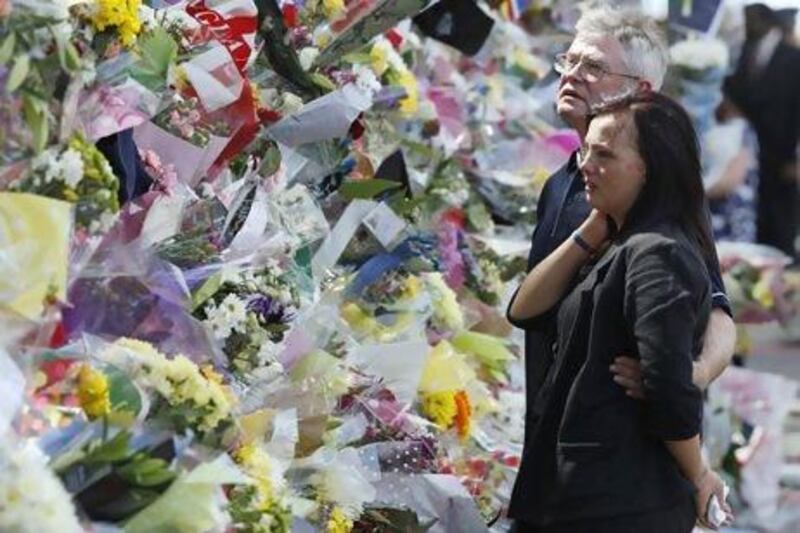LONDON //One of the main suspects in the killing of a British soldier on a London street had previously been arrested in Kenya in 2010, the country's anti-terrorism police confirmed yesterday.
Michael Adebolajo was believed to have been preparing to train and fight with the Al Qaeda-linked Somali militant group Al Shabab when he was arrested with five others, the head of Kenya's anti-terrorism police unit, Boniface Mwaniki, said.
A spokesman for Kenya's government, which earlier denied that Mr Adebolajo had been in the country, said yesterday that he was arrested under a different name.
"Kenya's government arrested Michael Olemindis Ndemolajo. We handed him to British security agents in Kenya and he seems to have found his way to London and mutated to Michael Adebolajo," the spokesman, Muthui Kariuki, said.
Mr Adebolajo, 28, and Michael Adebowale, 22, were both shot by police at the scene of the attack on Lee Rigby on Wednesday and remain in separate hospitals under armed guard.
The government, meanwhile, announced it would establish a task force to tackle what British prime minister David Cameron's office described as the "poisonous narrative" of religious leaders who "promote violence".
The group will look at whether new powers and laws are needed to clamp down on religious leaders who promote extremist messages and who target potential recruits in jails, schools and mosques.
The force will include senior ministers, London's police chief and the head of the MI5 domestic security service.
Mr Adebolajo, who is of Nigerian descent, was reported to have been a member of the now-banned Al Muhajiroun group, which was founded in Britain by, among others, Omar Bakri Muhammad, who since 2005 has lived in Lebanon and who is not allowed to re-enter the country.
The group came to public attention in 2003, when it denounced the invasion and subsequent occupation of Iraq as an illegal crusade against Muslims that it was a duty of Muslims to resist, and often protested at the return of slain British soldiers.
Six suspects besides Mr Adebolajo and Mr Adebowale have been arrested since the attack, including three men in their 20s from south-east London who were detained on Saturday on suspicion of conspiracy to murder.
Two of the six were released without charge on Friday and another was released on bail on Saturday.
The home secretary, Theresa May, said on a morning television show yesterday that 500 "officers and others" were now working on the investigation.
She said she would try to revive a bill that would allow police and security services access to all UK online communications, including email and social media, without a court warrant or suspicion of imminent threat.
The communications data bill, dubbed a "snooper's charter" by critics, was shelved earlier this year after it was resisted by Nick Clegg, the Liberal Democrat deputy prime minister, as a major intrusion into people's privacy.
He is likely to now find increasing political pressure to drop his opposition to the bill, with some members of the opposition Labour Party indicating they might vote with Mr Cameron's Conservative party on the issue.
Also yesterday, about 2,000 members of the far-right English Defence League, EDL, which was established in 2009 in response to Al Muhajiroun demonstrations, marched in the northern city of Newcastle, chanting Rigby's name and shouting, "Whose streets? Our streets!"
There has been a dramatic spike in anti-Muslim incidents since last Wednesday and observers say tensions between communities are at their sharpest in years.
* With additional reports from the Associated Press and Reuters
twitter: For breaking news from the Gulf, the Middle East and around the globe follow The National World. Follow us






